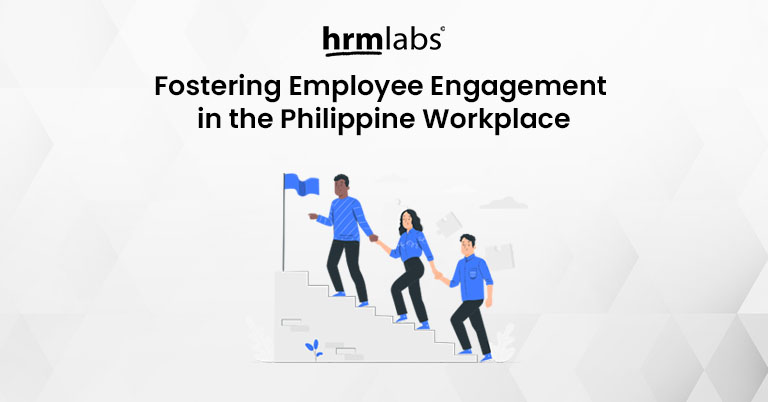Employee engagement is a cornerstone of organizational success, particularly in a culture-rich environment like the Philippines. It’s more than just a buzzword; it’s a strategic imperative that drives productivity, innovation, and retention.
To cultivate a high-performing and satisfied workforce, companies must adopt a holistic approach that addresses the unique needs and aspirations of Filipino employees.
Understanding the Filipino Workplace Culture
The Filipino work ethic, characterized by values like respect, loyalty, and bayanihan (communal spirit), is a potent force in the workplace. Organizations that tap into these cultural nuances can create a strong foundation for employee engagement. However, it’s essential to go beyond surface-level understanding and delve deeper into the evolving expectations of the younger workforce, particularly Gen Z and Millennials.
Key Strategies for Employee Engagement
Engaging employees effectively requires a strategic approach that addresses their diverse needs and fosters a positive work environment. Here are some key strategies to enhance employee engagement:
Foster a Sense of Community and Belonging
Filipinos are known for their strong sense of community and familial ties. Creating a workplace that feels like a second home can significantly enhance employee engagement. Companies can foster this sense of belonging by encouraging team-building activities, celebrating cultural and national events, and creating opportunities for social interaction among employees. Simple gestures like celebrating birthdays, recognizing personal achievements, and organizing company outings can make a big difference.
Provide Opportunities for Career Growth
In a competitive job market, Filipino employees are eager to advance their careers. Offering clear pathways for career development is crucial for keeping them engaged. This can include providing access to training programs, mentorship opportunities, and regular performance evaluations. Employees who see a future with the company and feel that their efforts are being recognized are more likely to stay motivated and committed.
Emphasize Work-Life Balance
The pandemic has underscored the importance of work-life balance, and this is particularly true for Filipino workers. Remote work has become more prevalent, and employees now expect a certain level of flexibility in their work arrangements. Companies that offer flexible work hours, remote work options, and policies that support mental health and well-being are more likely to retain top talent.
Encourage Open Communication
Transparency and open communication are vital in building trust between employees and management. Filipino workers appreciate when they are kept in the loop about company developments and when their voices are heard. Regular town hall meetings, feedback sessions, and an open-door policy can help create a culture of openness and mutual respect. Encouraging employees to share their ideas and concerns without fear of retribution can lead to a more engaged and innovative workforce.
Recognize and Reward Contributions
Recognition plays a crucial role in employee engagement. Filipino employees, like others, want to feel valued for their contributions. Implementing a recognition program that acknowledges both individual and team achievements can boost morale and motivation. Whether it’s through monetary rewards, public recognition, or even a simple “thank you,” acknowledging employees’ hard work fosters a positive work environment.
Invest in Employee Wellness Programs
Employee wellness is becoming increasingly important in the Philippines. Companies that invest in wellness programs—ranging from physical health initiatives like gym memberships and health insurance to mental health support—can significantly improve employee engagement. Wellness programs show that the company cares about its employees’ well-being, which in turn fosters loyalty and a sense of belonging.
Leverage Technology for Engagement
In a digitally connected world, leveraging technology can enhance employee engagement. The use of HR management systems (HRMS) like HRMLabs can streamline processes such as attendance tracking, payroll management, and performance appraisals, freeing up time for more meaningful engagement activities. Additionally, digital platforms can facilitate remote work, online training, and virtual team-building activities, ensuring that employees stay connected and engaged regardless of their location.
Promote Corporate Social Responsibility (CSR) Initiatives
Filipino employees, particularly the younger generations, are increasingly looking for employers who are socially responsible. Companies that engage in CSR activities, such as community service, environmental sustainability programs, and charitable donations, can boost employee engagement by providing opportunities for employees to contribute to meaningful causes. This not only enhances the company’s reputation but also gives employees a sense of pride in their work.
Cultivate a Culture of Continuous Learning
A culture of continuous learning is essential for keeping employees engaged and up-to-date with industry trends. Offering regular training sessions, workshops, and opportunities for skill development can help employees feel empowered and capable of taking on new challenges. In the Philippines, where many young professionals are eager to learn and grow, providing access to learning resources can be a significant driver of engagement.
Tailor Engagement Strategies to Individual Needs
Finally, it’s essential to recognize that no two employees are the same. Tailoring engagement strategies to meet individual needs can make employees feel valued and understood. This can involve personalized career development plans, flexible work arrangements, or even customized benefits packages. By addressing the unique needs of each employee, companies can create a more inclusive and engaging work environment.
Conclusion
Employee engagement is a key driver of business success, particularly in the Philippines, where the workforce is young, dynamic, and eager for growth. By implementing these strategies, businesses can create a positive work environment that not only attracts top talent but also retains and motivates employees. Whether it’s through fostering a sense of community, providing opportunities for career development, or leveraging technology, the right engagement strategies can lead to higher productivity, lower turnover, and a stronger company culture.
Engage your workforce with HRMLabs, and discover how our comprehensive HR management solutions can help you build a motivated and loyal team, ready to drive your business to new heights.

